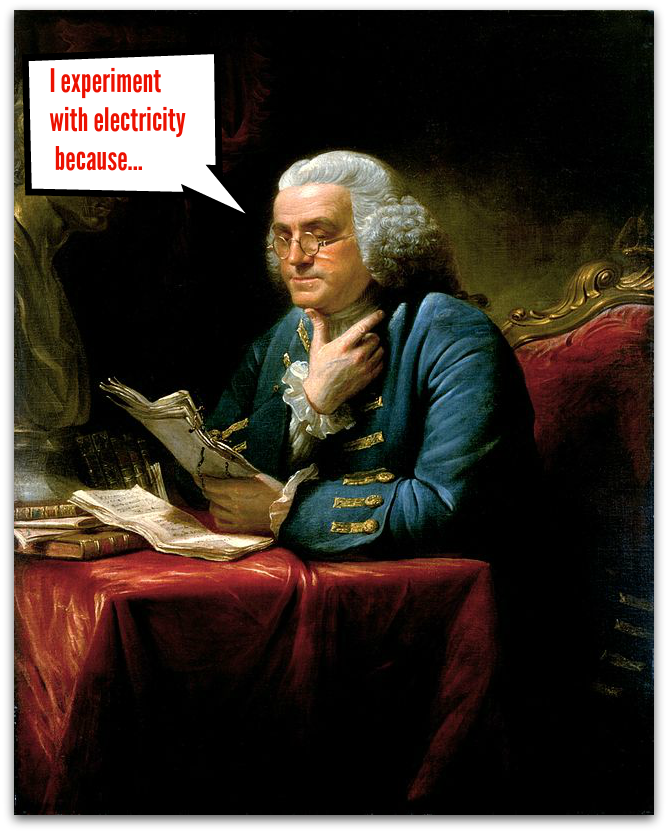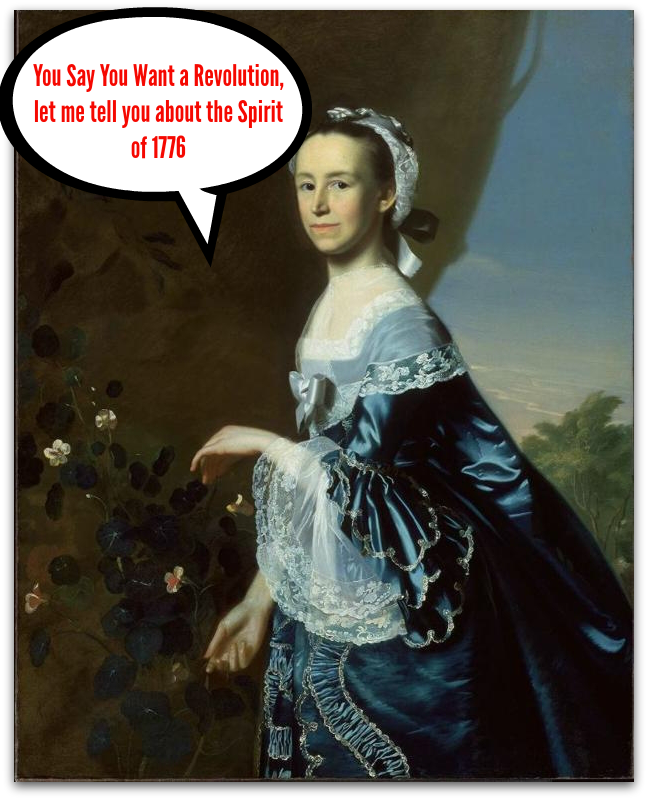 How can historians solve the disconnect between the scholarship we produce and the world outside of museums and universities?
How can we help non-specialists connect with the past in a way that makes it relevant to their present?
How can historians solve the disconnect between the scholarship we produce and the world outside of museums and universities?
How can we help non-specialists connect with the past in a way that makes it relevant to their present?
On Thursday, April 16, 2015, the National Council on Public History offered “History Communicators," a conference panel with an idea that may help the historical profession better connect with and serve the needs of society.
In this post, you will discover what “history communicators” are, where the idea came from, and thoughts about how the historical profession might integrate this new breed of historian into the profession.
The Origin of History Communicators
The idea for history communicators originated with Jason Steinhauer.
Steinhauer works as a program specialist at the John W. Kluge Center at the Library of Congress. The Kluge Center strives to “bring together scholars and researchers from around the world to stimulate and energize one another, to distill wisdom from the Library’s rich resources, and to interact with policymakers and the public.”
Steinhauer’s position has allowed him to interact with scholars from many different fields. This interdisciplinary experience introduced him to “science communicators,” a position that he would like to see historians adopt.
What is a Science Communicator?
 Across the disciplines of science, scientists realized that to attract funding for their work they needed to keep lawmakers, university trustees, and the public informed about how their research would better society.
Across the disciplines of science, scientists realized that to attract funding for their work they needed to keep lawmakers, university trustees, and the public informed about how their research would better society.
Scientists recognized that the demands of lab research and university teaching prevented many researchers from discussing their investigations with those who might fund them. They also found that many researchers lacked the ability to discuss their work in a way that lawmakers, taxpayers, and university trustees could understand. The profession solved this problem by creating a new kind of scientist: A Science Communicator.
Science communicators hold Ph.D.s in science, have lab experience, and they possess the communication skills necessary to write and speak about scientific research in a way that those who might fund it can understand.
Science communicators have increased interest in and funding for scientific research by helping non-scientists grasp how scientific work and study betters their lives and improves the world. It is in large part because of the work of science communicators that the idea of STEM and its funding has taken off.
The addition of science communicators to the scientific profession has been so successful that institutions such as the Massachusetts Institute of Technology have created programs to train more science communicators.
Astrophysicists Neil deGrasse Tyson and Janna Levin work as science communicators.
What Could History Communicators Do for Historical Research?
Steinhauer believes that we (historians and historical organizations) should adopt and apply the science communicator model to our discpline. He advocates that we create a new type of professional historian: The History Communicator.
 Steinhauer notes that historians will not be able to return history to its once prominent position in the public mind unless the profession adapts to the 21st-century job market.
Steinhauer notes that historians will not be able to return history to its once prominent position in the public mind unless the profession adapts to the 21st-century job market.
Today, universities and colleges demand that history professors assume heavy teaching loads, service requirements, and work in a “publish or perish” atmosphere. These job requirements, combined with little-to-no compensation for public outreach, have created a situation where academic historians have neither the time nor motivation to interact with and help the public connect with their scholarship.
Furthermore, Steinhauer opines that academic historians should not be responsible for communicating their ideas to non-specialists: “To produce new, sharp scholarship requires tremendous time and research…Historians, then, should not also be responsible for promoting and explaining the significance of their scholarship to the public.” Instead, academic historians should be able to “focus on conducting deep research, writing, publishing, teaching and working toward tenure—all of which America needs."
If communicating the ideas of history and its relevance to the present should not fall to academic historians, whose responsibility is it?
This is where the idea of history communicators comes in.
 According to Steinhauer, the “complex and political task of bringing historical research out of the scholarly communication cycle and into the mainstream requires a unique set of skills that must be cultivated, practiced, and applied across a wide range of media now available.”
According to Steinhauer, the “complex and political task of bringing historical research out of the scholarly communication cycle and into the mainstream requires a unique set of skills that must be cultivated, practiced, and applied across a wide range of media now available.”
Given the large time commitment that this work requires, Steinhauer would like to see the profession create and fund the role of history communicator, a “new class” of historian that will “operate on the edge and intersection of new historical scholarship and the constantly-evolving world of communicating to the public in order to keep history relevant in the 21st century.”
For Steinhauer, to be a history communicator means to be part digital humanist, content strategist, marketer, blogger, journalist, lobbyist, and historian.
History Communicators: A Discussion at NCPH 2015
Steinhauer presented his idea for history communicators at the 2015 NCPH annual meeting with Julie Golia (Brooklyn Historical Society), Nicole Hemmer (US News & World Report), and Rebecca Onion (Slate).
 Steinhauer began the conversation by explaining how he came up with the idea for history communicators, the work he saw these historical professionals doing, and how public historians stood poised to pioneer the profession.
Steinhauer began the conversation by explaining how he came up with the idea for history communicators, the work he saw these historical professionals doing, and how public historians stood poised to pioneer the profession.
Steinhauer reiterated his view that the role of academic historians should be to produce scholarship and train students how to read primary sources, skills critical for history communicators. He also admitted that well-trained, academic historians would need to let go of their ideas of the exclusivity of the profession for history communicators to successfully perform their job.
Golia, Hemmer, and Onion served as examples of history communicators and offered insight into the types of work they do to better connect society with its past. All three work as journalists and public history professionals.
When the floor opened for comment, several public historians raised questions about where funding would come from for this type of work and where history communicators would fit into the profession. Their commentary raised the important point that funding cuts have impacted public history sites as much as, or more than, college and university departments. As a result, many public historians also do not have time to interact with the public.
To get a feel for the conversation prompted by this panel, check out “History Communicators is Launched.”
 Thoughts and Ideas
Thoughts and Ideas
I am a fan of Steinhauer’s idea: history needs history communicators.
With that said, I see three issues we need to tackle before we can create (officially) and integrate this new position into the historical profession.
First, we must solve the problem of where history communicators fit into the profession and who will pay them for their work.
It seems to me that nearly every professional historian agrees with the idea that historians need to interact with the public more. The majority of us understand that if we can restore history to the forefront of the public mind then we can fix, or at least lessen, our funding and enrollment problems. With that said, I do not see many colleges, universities, or public history organizations advertising positions for history communicators.
History communication is a job that everyone wants done, but wants someone else to pay for and do.
My passion for both producing serious historical scholarship and communicating it to the public has placed me in “professional historian limbo.” My academic and public colleagues admire and respect my work, but their university and organizational departments have no place for me or other history communicators. Therefore, many of us work without institutional or financial support.
 Second, we need to find an approach that allows all historians to practice history communication.
I disagree with Steinhauer's notion that academic historians shouldn’t be history communicators.
Second, we need to find an approach that allows all historians to practice history communication.
I disagree with Steinhauer's notion that academic historians shouldn’t be history communicators.
We shouldn't limit history communicators to historians of any specific historical background. The position of history communicator should be open to any professional historian who has the inclination to convey serious scholarship to the public.
Academically-trained historians are in many cases the best equipped historians to be history communicators because they know primary sources, know how they relate to the historiography, and how that historiography relates to the present. It would be best for the discipline if we could find a way to allow their active participation.
Third, we need to develop and integrate training that will enable history communicators to succeed.
We need to find space in our graduate, and possibly undergraduate, programs to add communication, technology, and marketing courses.
History communicators need to know not only history, but how to communicate, market, and place history into our technology-filled world.
We need to add training in writing, marketing, journalism, social media, blogging, podcasting, internet video production, app development, website creation, and, in the near future, virtual reality software to our student curriculums. I know this seems easier said than done.
Conclusion
Steinhauer has presented us with a great idea.
History communicators promises historians a way to return history to the forefront of public consciousness. This accomplishment would not only improve our society, but it may also alleviate our funding and enrollment problems.
 Get Involved
Get Involved
On Wednesday, May 13 at 7pm EST, historians interested in history communication and adding history communicators to the profession will gather on Twitter to share ideas.
You can participate by following the hashtag: #histcomm.
*For more on history communicators, see Steinhauer and James Grossman’s “Historians and Public Culture: Widening the Circle of Advocacy."
